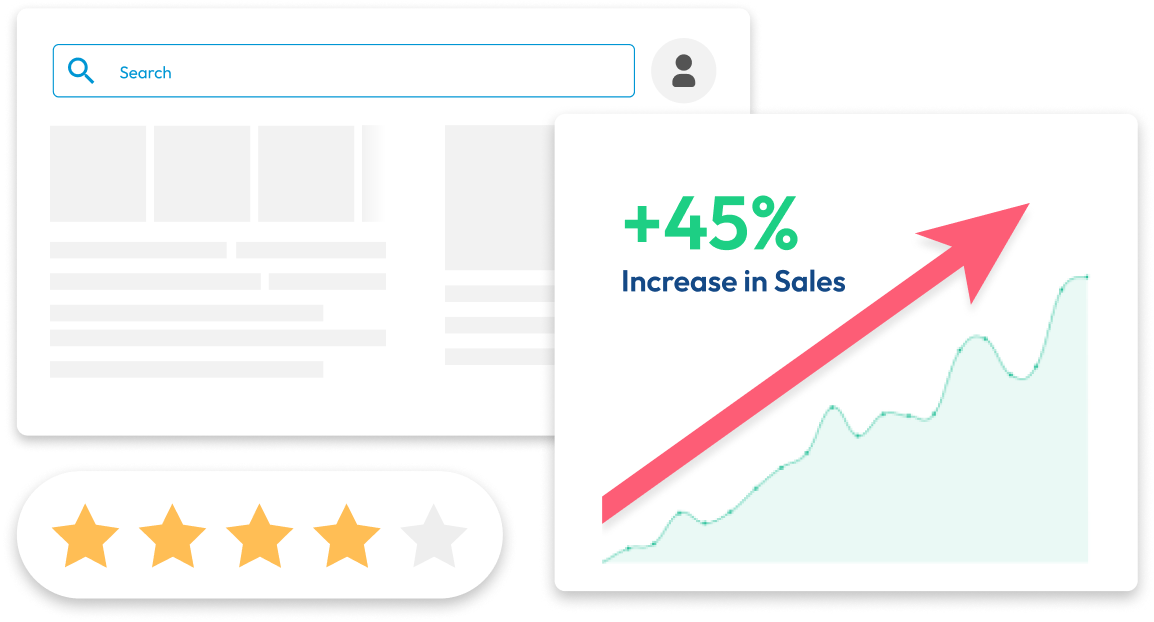Get a free consultation with us!
Stop wasting money and unlock the hidden potential of your advertising.
- Discover the power of intentional advertising
- Reach your ideal target audience.
- Maximize ad spend efficiency.

Have you ever wondered how companies know exactly what you like and send you ads for it? That's because they use something called data-driven marketing. It's like having a superpower that helps businesses understand what their customers want. Stop wasting money and unlock the hidden potential of your advertising. Pretty cool, right? Let’s find out how using information about customers (that's the data part) can make marketing way more effective. It's like having a cheat code for your favourite video game but for marketing illustrated by experienced digital marketing consultant. Imagine you’re running a lemonade stand and want to sell as much lemonade as possible. Instead of guessing what flavours people like or when they want to buy, you can use data-driven marketing to help you make smart decisions. Data-driven marketing is all about collecting information about your customers and using it to understand their preferences. For example, you might track what flavours sell best, what times of day are busiest, and even the ages of your customers. By analysing this information, you can discover patterns, like noticing that strawberry lemonade is super popular on hot days or that most customers come by after school. Once you have this information, you can make decisions that will improve your lemonade stand. If you find out that kids love strawberry lemonade after school, you might decide to make extra batches during that time or create a special deal just for them. This way, you’re not just guessing what might work - you’re using real data to guide your choices. Data-driven marketing helps you understand what your customers really want, allowing you to spend your money wisely and make your customers happier. By using data-driven marketing, you can turn your lemonade stand into a thriving business by truly understanding and meeting your customers' needs.
Nowadays, businesses have access to tons of information about their customers. This information, called data, can help them make smarter choices and connect better with people. Data-driven marketing is all about using this data to create effective marketing strategies. Here are some key benefits of data-driven marketing:
1. Better Decision Making Imagine you're playing a video game. Instead of just guessing which moves to make, you have a special guide that tells you what works best. That's what data-driven marketing does for businesses. It gives them real information to make smart choices, like: This way, businesses don't have to guess-they know what works! 2. Finding the Right Customers Data-driven marketing helps businesses find people who will really like their products. It's like having a magic wand that points out your perfect customers. For example, if you sell sports gear, data can help you find people who love sports and show them your cool new sneakers or basketballs. 3. Getting More for Your Money When businesses use data-driven marketing, they spend their money more wisely. It's like having a piggy bank that tells you the best way to spend your allowance. For instance, if a company knows that most of their customers come from Instagram, they might spend more money on Instagram ads instead of TV commercials. 4. Quick Reactions Data-driven marketing lets businesses change their plans super fast if something isn't working. It's like being able to change your outfit quickly if it starts raining. For example, if a store sees that nobody is buying their winter coats in the middle of summer, they can quickly start advertising swimsuits instead. By using data-driven marketing, businesses can make smarter choices, find the right customers, save money, and react quickly to changes. It's like having a superpower that helps them understand exactly what their customers want!
Have you ever wondered how businesses make their marketing plans work better? Data-driven strategies are like that secret recipe. They help businesses use information (data) to make smart choices about how to reach their customers.
1. Setting Clear Goals Before businesses start using data, they need to know what they want to achieve. It's like deciding what grade you want to get on a test before you start studying. For example, a business might say, "We want 1,000 more people to visit our website in the next three months." This clear goal helps them focus on what's important. 2. Collecting and Analysing Data Once they have this information, they study it to find patterns. For instance, they might discover that more people visit their website on weekends. This helps them know when to post new content or run special offers. 3. Using Data Across Different Channels Businesses use many ways to talk to their customers - like websites, social media, and emails. It's important to look at information from all these places together. It's like putting together pieces of a puzzle to see the big picture. For example, they might notice that people who see their ads on Instagram often end up buying things from their websites. This helps them understand how different parts of their marketing work together. By following these steps, businesses can use data to make their marketing much better. Remember, data-driven strategies aren't just for big companies. Even a kid running a lemonade stand can use these ideas to make their business more successful.
When businesses want to make smart choices about their marketing, they use special tools to help them understand what's working and what's not. Some of these include:
Google Analytics Google Analytics is like a super-smart detective for your website. It tells you: It's free to use and can help you make your website better. For example, if you see that people are leaving a certain page quickly, you might want to improve that page to make it more interesting.
HubSpot HubSpot is like a Swiss Army knife for marketing. It does lots of different things to help businesses:
HubSpot is great because it puts all this information in one place, so you don't have to use lots of different tools. Tableau Tableau is like a magical art set for your data. It turns boring numbers into cool pictures and graphs that are easy to understand. With Tableau, you can: Even if you're not great with computers, Tableau makes it simple to create awesome data visualisations. By using these tools, companies can figure out what their customers like and don't like, and then use that information to make their marketing even better. Coca-Cola's Personalised Marketing Campaign Coca-Cola's "Share a Coke" campaign is a well-known example of successful data-driven marketing. By analysing customer data, Coca-Cola identified popular names among their target audience and printed them on Coke bottles. This personalised approach resonated with consumers and led to a significant increase in sales. According to a report, the campaign resulted in a 7% increase in sales in Australia and a 4% increase in New Zealand. This demonstrates the power of personalisation in driving customer engagement and boosting sales. By leveraging data to understand their audience, Coca-Cola created a campaign that truly connected with consumers.
Netflix's Recommendation Engine Netflix uses data-driven marketing to provide personalised recommendations to its users. By analysing viewing habits and preferences, Netflix's recommendation engine suggests content that users are likely to enjoy. This personalised approach keeps users engaged and increases their satisfaction with the platform. A study published in ACM Transactions on Management Information Systems found that Netflix's recommendation system is responsible for about 80% of hours streamed on the platform. Additionally, Netflix estimates that its recommendation system saves the company $1 billion per year through increased customer retention. The success of Netflix's recommendation engine highlights the importance of using data to deliver personalised experiences. By leveraging data to understand user preferences, businesses can create more relevant and engaging content. As technology gets better, data-driven marketing is changing all the time. This means businesses need to keep finding new ways to use information (data) to connect with their customers. Here are some important trends and ideas that are shaping the future of data-driven marketing:
Continuous Improvement To be successful, businesses need to always look for ways to improve. This means checking how their marketing strategies are working and making changes when necessary. For example, if a company notices that their ads aren't getting many clicks, they might change the ad design or try a different platform, like switching from Facebook to Instagram. By keeping up with the latest trends and tools, they can make sure their marketing is effective. Emerging Trends Several exciting trends are changing how businesses use data. Here are a few examples: Building a Data-Driven Culture For data-driven marketing to work well, businesses need to create an environment where everyone uses data to make decisions. This means encouraging all employees to think about how data can help them in their jobs. For example, if a store manager notices that more people are buying video games, they might decide to create a special sale on video games to attract even more customers. To help employees understand data better, companies should provide training. This way, everyone knows how to analyse and understand data. When employees feel confident using data, they can make smarter choices that help the company succeed. The future of data-driven marketing is exciting and full of possibilities. By continuously improving their strategies, using new technologies, and creating a culture that values data, businesses can connect better with their customers and achieve greater success.
Imagine you’re running a lemonade stand and want to sell as much lemonade as possible. Instead of guessing what flavours people like or when they want to buy, you can use data-driven marketing to help you make smart decisions. Data-driven marketing is all about collecting information about your customers and using it to understand their preferences. For example, you might track what flavours sell best, what times of day are busiest, and even the ages of your customers. By analysing this information, you can discover patterns, like noticing that strawberry lemonade is super popular on hot days or that most customers come by after school. The future of marketing is all about data, and businesses that use this approach will have a better chance of succeeding in a competitive world. If you want to improve your marketing and see these benefits for yourself, Sagar and his team at Xugar can help you - we are your dream team of digital marketing experts in Australia who know how to use data to create effective marketing strategies. Don’t miss out on the chance to make your marketing better. Start your data-driven marketing journey today with Xugar and discover how data can help your business grow. Contact us to learn how we can help you achieve your marketing goals and stay ahead of the competition!Get a free consultation with us!

Did you know that companies using data-driven marketing are six times more likely to be profitable year-over-year?
Understanding Data-Driven Marketing
The Benefits of Data-Driven Marketing
Implementing Data-Driven Strategies
Tools for Data-Driven Marketing
Case Studies
The Future of Data-Driven Marketing
Understanding Data-Driven Marketing
Harness the Power of Data-Driven Marketing with Xugar





WINNER

FINALIST

FINALIST

WINNER

WINNER

FINALIST

FINALIST

WINNER
